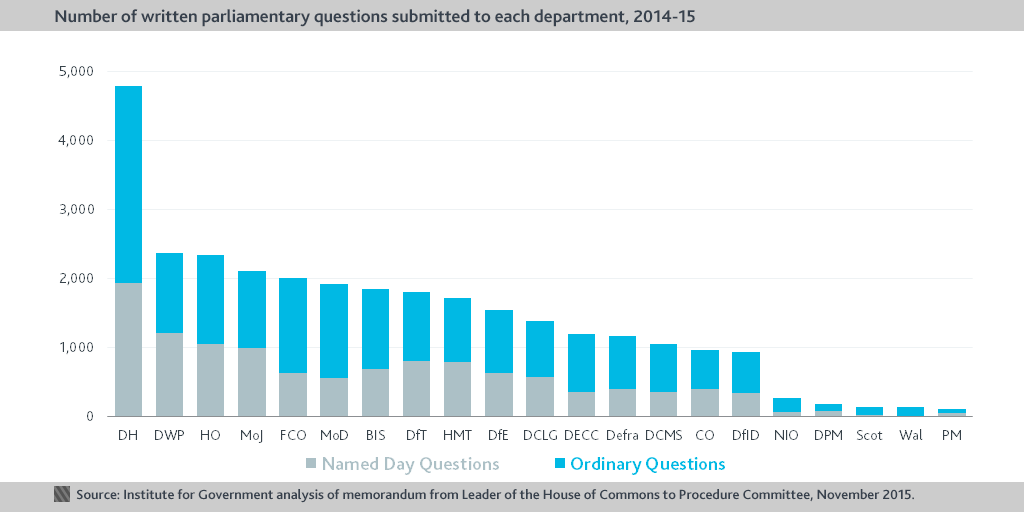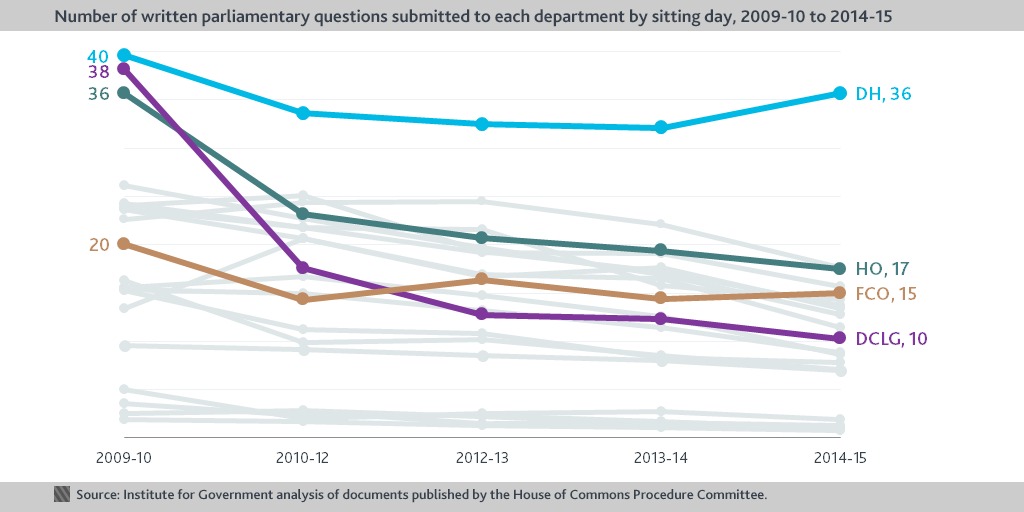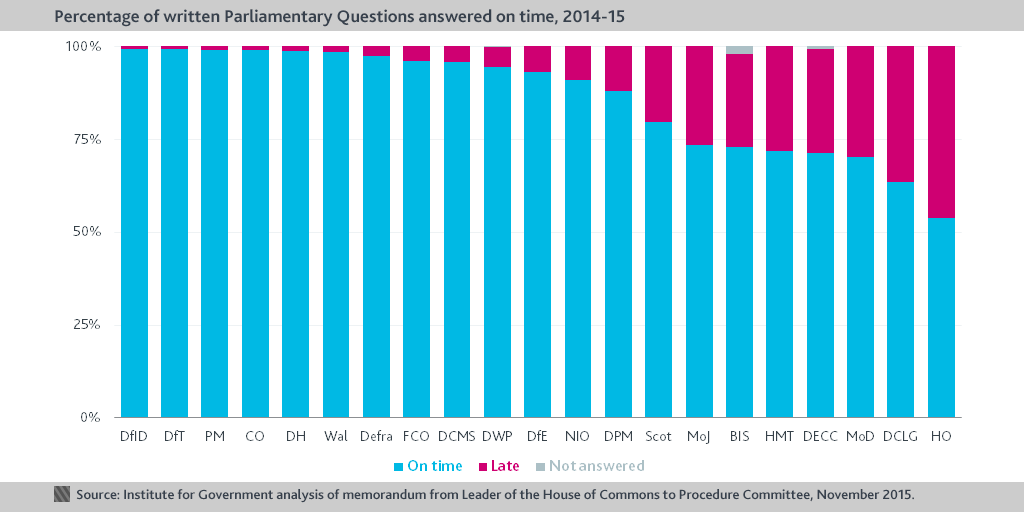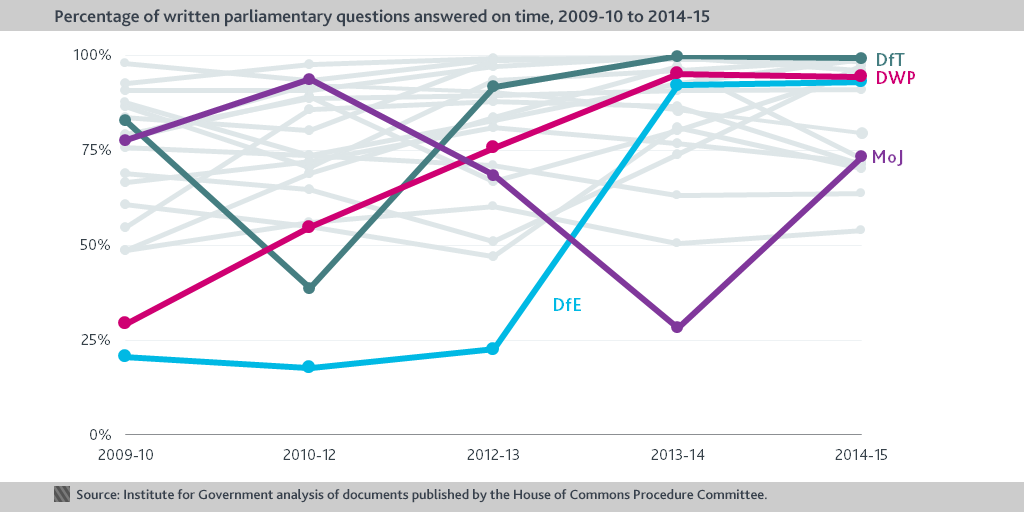Minding their PQs
Written parliamentary questions under the Coalition Government.
If MPs don’t get the opportunity to ask questions of ministers in the House of Commons, they can write to them – and the department has to answer, in a timely fashion. Just how many of these questions do departments have to deal with and how promptly do they respond? Emily Andrews looks at the numbers.
Parliament holds government to account by asking questions: in select committee rooms, in the House of Commons, or in writing. Written parliamentary questions (PQs) help MPs to understand what departments are doing, and force the minister (and the staff of the department) to defend their decisions. Members of the public can now view questions and answers online, after a new electronic system replaced ‘hard copy’ publication last year. This gives us real-time data about individual questions, but not as much detail as the Leader of the House’s annual memo to the Commons Procedure Committee, which is our source of data for these charts. PQs place a burden of work on the departments. During the 2014–15 Parliamentary session, departments received 30,172 written questions; all of which needed to be answered accurately, within a working week (ordinary questions) or according to a timeframe dictated by the MP (named day questions). The Department of Health receives by far the most parliamentary questions 



Abbreviations for government departments can be found here.
- Topic
- Ministers
- Administration
- Cameron-Clegg coalition government
- Legislature
- House of Commons
- Publisher
- Institute for Government